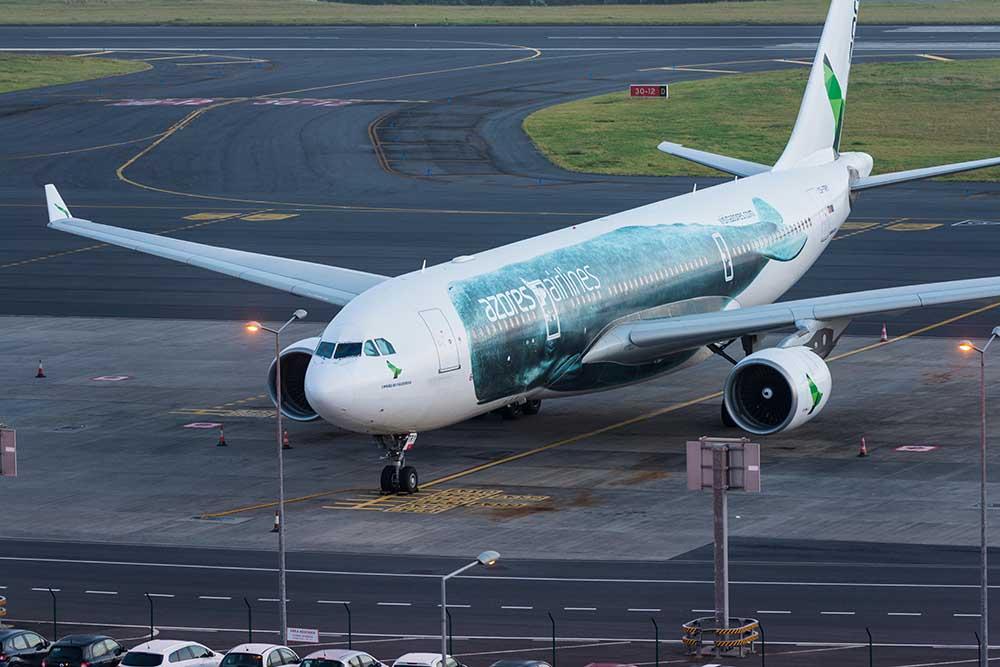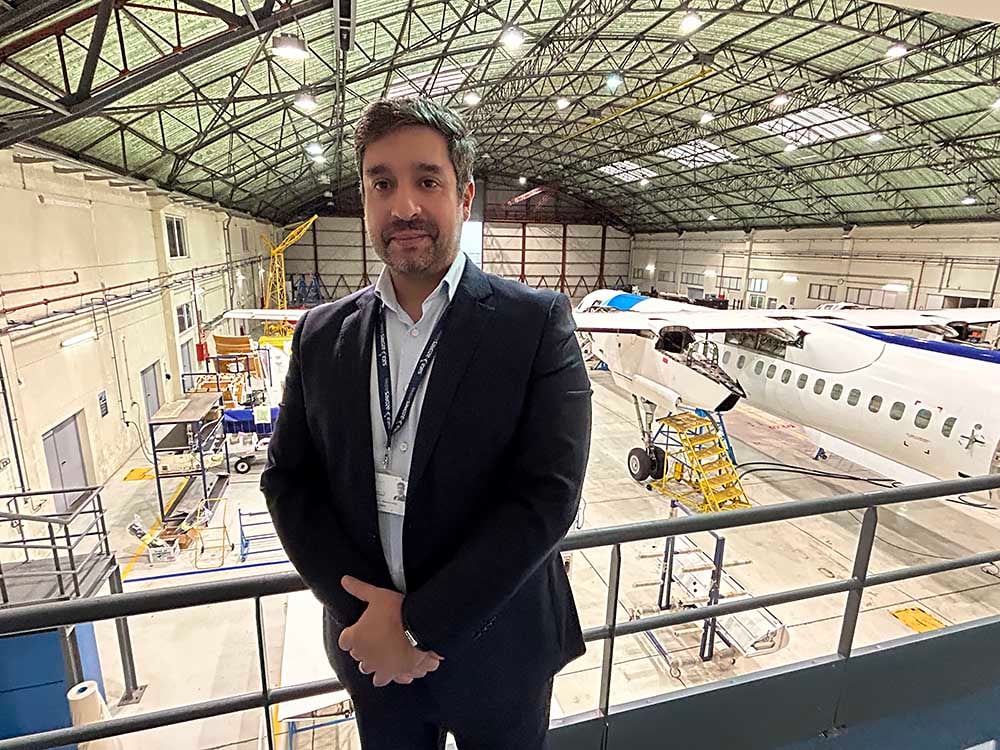
PONTA DELGADA, PORTUGAL—Performing aircraft maintenance in the autonomous region of the Azores Islands in the Atlantic Ocean is challenging and expensive. But SATA Air Açores Group wants to be even more autonomous and is preparing to add in-house capabilities for enhanced Airbus A320neo family checks.
Air services are essential for economic development in the Azores Islands. Air Açores Group has two air operator certificates. Its regional carrier, SATA Air Açores, operates two De Havilland Canada Dash 8 Q200s and five Q400s. Its international operation, Azores Airlines, utilizes two Airbus A320s, two A321neos and three A321neoLRs. Its first A320neo was expected to enter services during the time of writing. A second A320neo is expected in the first quarter of 2024, which should replace the current A320ceo fleet.
SATA has its own MRO base in Ponta Delgada, the airline’s main hub. Far away from the European continent, the company must act autonomously in terms of workforce, stock and tooling.
“Our workload is increasing 15-20% every year. The aircraft are getting older but flying more. That creates more work,” says Sergio Reis Silva, director of maintenance at SATA. “In 2023, during the IATA summer schedule period, we achieved numbers which we never had before—financially and operationally as well. We never flew so much, and this definitely had an impact on the maintenance.”
SATA has 100 employees for its maintenance department, of which half are certificated technicians. For its Dash 8 base maintenance, there are two working shifts on duty in Ponta Delgada. SATA also has technicians based in Lisbon, one of its most important destinations.
The MRO unit of SATA is a JAR 145 approved maintenance organization. SATA performs heavy base maintenance on its Dash 8 fleet as well line maintenance for its Airbus fleet and for TAP Air Portugal at the airports in Ponta Delgada and the island of Terceira.

Talking about the increased volume of work, Silva says the MRO unit was able to handle this with its current headcount, “but we need more people, tools and resources,” he adds. While Silva says the MRO unit is capable of doing more work, he notes that this adds risks that must be mitigated. He also says the airline group will be increasing operations next year, which will be challenging.
SATA MRO wants to hire as many employees as it can, but it is not easy to find certified technicians—or to bring them to the archipelago of the Azores. “Most of our engineers are local. The objective is to initially train them here,” says Silva. He notes that SATA tries to avoid contracting employees from outside the islands if possible due to high risk of new hires leaving the Azores. “Our main objective is to invest locally in young people. It is a long-term project,” says Silva, noting that it takes 4-5 years for an engineer to receive their license. “We cannot snap our fingers and get an engineer next month.”
AIRBUS FOCUS
Meanwhile, SATA plans to upgrade its MRO infrastructure at Ponta Delgada to perform A checks for its Airbus A320 family fleet. It expects this move give it more independence from TAP Portugal, which performs maintenance on Azores Airlines’ Airbus fleet in Lisbon.
Currently, SATA MRO is only doing line maintenance for its Airbus fleet. “When we start A checks this is a main step on the Airbus fleet,” Silva says. “We have to invest in tooling and training. On the certification side we are done. We need to be audited by ANAC (National Civil Aviation Authority of Portugal).” Silva adds that an initial investment of €1.8-2 million (approximately $1.95-2.16 million) will be needed for the A check project.
“The objective is to gradually separate from TAP; we are too much related. This will give us leverage to get more autonomous,” says Silva.
The current hangar in Ponta Delgada is big enough to handle three Dash 8s simultaneously or one Dash 8 and one Airbus A321neoLR. C checks for its Airbus A320neo family fleet remain outsourced to MRO providers such as Lufthansa Technik Malta.
Silva says SATA MRO has invested a few million euros in spare parts stock. “Controlling and managing a stock on an island is most challenging,” Silva says, adding that large stocks must be delivered by boat. “In terms of logistics, you have to think about [it] one to two weeks in advance.” He notes that sea cargo can delay the delivery of an aircraft, but flying in tools by air cargo can be more expensive than the spare part itself.
Meanwhile SATA is implementing Swiss-AS AMOS maintenance control software to manage its maintenance, engineering and logistics needs.




